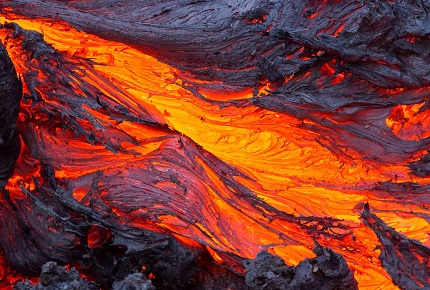This is mark Joseph “young” blog entry #497, on the subject of Game Ideas Unlimited: Vivid, Recovered.
Decades ago I was writing the weekly Game Ideas Unlimited series at Gaming Outpost. It was in the main lost when that site crashed. Then about six years ago the monthly series RPG-ology launched, and the webmaster at the Christian Gamers Guild said he hoped to see ideas from the earlier series revived. I had a few saved on my drive, and converted them to repost, and rewrote a few from remembered ideas. Then editors at the French edition of Places to Go, People to Be discovered that quite a bit of the series was preserved at the Internet Archive, and provided information for me to access it. Conversion of many of the articles to the new series began, with an effort to keep them in the original sequence, although interspersed with new material.
However, some of the earlier ideas were recreated in articles in the new series before these were recovered. In some cases, it made sense later to recover the original as a new entry. However, the rewritten RPG-ology #15: Vivid was similar enough to the original Game Ideas Unlimited version that a second article on the same point would be overly redundant. Still, I was reluctant to lose the original. Hence I made the decision to include here: Game Ideas Unlimited: Vivid
[Five weeks A few months] ago, in an episode of [this the RPG-ology] series entitled Senseless, I spoke of my terrifying trip through Skinner’s Falls during the flood. Then I told it in order to look at those moments at which we are completely robbed of our ability to think or act; but I also said that I usually tell it for another reason, and that when I do I tell it with another story.
This is that other story.
We were hiking through some caves. The plan had been for us to enter in one place and exit from another, so we had our gear with us. But things did not go well; a weak ceiling collapsed, and we were cut off from our guide. We were not certain even whether our guide had survived. Fortunately we had food and water, and some reliable lamps which would last quite a while if we were careful. So for lack of a better plan, we began exploring the caves beyond where we were in search of an escape route.
We kept pushing ourselves, exhausting every path we found. But eventually we were faced with the possibility that there was no other exit.
There was one chance. We had at one point come to what we had ruled a dead end; but it was not a dead end–there was a crevice, a wide crack in the floor like something from the mines of Moria, and another passage on the other side. The heat rising from this fissure was intense, but the way it split there were islands, pillars, fragments of floor between us and the far side. There were also stalactites within reach above us, good heavy ones that would probably suffice for safety lines. We had rope; we had other gear. It appeared that we would either cross here, or wait in the hope that someone would dig us out.
Over the course of the next several hours we built a pair of makeshift bridges–catwalks, really. We doused ourselves with water to help tolerate the heat. Plotting a route across the gap, one at a time we moved from the edge to one of the nearest columns, to another, moving the bridges. We tied ropes around our waists and had someone hold the other end; we tied ropes to stalactites as well as we could, and used these for extra security. It seemed like hours.
In the end, all six of us collapsed in the corridor on the far side. We were not out yet–we would still face several obstacles–but we would never forget this. I can still see the makeshift bridges, the eerie light from the depths, the exhausted look on the face of my Yazirian friend as he collapsed next to me.
That’s right, it was a game. You probably knew that–there are enough things in it that are unrealistic even with my editing. We had built the bridges from strange mushroom-like growths we found in the caves; the pillars were huge crystals, and the crevice was flowing with hot magma about thirty meters below us, and we made a two hundred meter crossing. But I remember it. I remember it vividly–I see these things in my mind’s eye, as clearly as the images I see of Skinner’s Falls, the four-foot walls of water coming at me as I stared helplessly into the surf. The place comes alive in my mind, as if I had been there.
Total Recall [(1990)] suggested the idea that when a vacation is over all you really have of it is the memory of the vacation. Thus if you don’t have the time or the money to take a truly exotic vacation, you can spend a couple of hours at a memory implant center and have them tailor the memory of a wonderful holiday. You never actually experience the trip itself, but you have the ability to go back over it in your mind, recalling the high points and telling people what you never did. It is a brilliant idea, and if the technology is ever developed I’m sure it will become very popular.
But we have something of that reality now. Through our role playing games, we visit exotic places. We can visit Mars, Titan Colony, even Middle Earth and Talislanta–places that don’t exist at all save in the minds of people; yet in our memories they are as real as anything else we remember.
And normally having told both stories and explained that the second is from a game, I would say that this is one of the great things I enjoy about games: that I remember going places and doing things that were completely impossible, yet the memory is the same as if they were real. It is one of the great things that sells me on this hobby. But today I’m going to push beyond that point to something else.
Why is that game moment so clear in my memory? There are other game moments I can call to mind–the time I in desperation challenged a skeletal warrior to a psychic duel to save the lives of my party, the time the illusionist accidentally opened a partial portal for a demon lord and I had to find a way to prevent it from coming through, the time we tricked a batch of space pirates into bringing us a second jetcopter so we would be able to carry all of our equipment with us when we left to assault their main base. I certainly don’t remember every moment of every game; I probably don’t even remember every life and death moment (particularly not in Gamma World, in which it seemed that life and death were a regular crisis, occurring several times per session). But I do remember some moments. What is it that makes these moments so memorable, so vivid?
In every case in which I can remember clearly the moments of the game, in which they come alive in my mind’s eye, there seem to be two factors at work: setting and tension. Both of these must be present in some measure; but more than that, they must somehow connect to each other. That is, the moment must be tense, in that there must be something at risk to the characters; and the setting must be clear, described in terms that make it easy to visualize; but more than that, understanding the scene must be important to resolving the tension.
In the situation described above, in order to get my people across that canyon I had to make myself aware of the details. Where were these crystal pillars? Could we trace a path that would take us across? What was the stuff growing in these caves? Could we make bridges from it? How hot was it here, and what could we do to mitigate that as a problem? What else could we see in this cave that would help us? Getting a complete picture of where we were enabled us to overcome the obstacles–and also left that image imprinted in our memories.
In another game, we were being pursued by mind flayers into a vast cavern, a home of myconids (fungus men) which was heavily overgrown with exotic underground plant life. They were going to catch us; it was a matter of time. So I ordered a battle plan that would split us into three groups and catch them in our midst–an ambush in which one group would be the bait and the other two the trap. In order to do that, I had to see the lay of the land, the nature of the bush, and be able to plot it. I still remember it, because I needed that visual information to succeed.
Another fight was inside a prefabricated building. There were security cameras on the walls, and we were caught in a firefight around a corner in the halls. The terrain was part of the battle–we had to maneuver so that we could all fire at them while maintaining some degree of cover for ourselves around the bend. That image comes to mind.
Yes there are images in my mind that do not involve battle; but even then, the scene was important to success. Trying to break into that compound in which we had that fire fight involved us in identifying security measures and countering them, disabling a security robot on regular rounds, doing reconnaissance from the roof of the building–in all, trying to visualize the situation because our character’s lives might be on the line. The settings were not all unusual, but they all had memorable features; the situations were not all life-and-death, but they all had the feeling of danger.
So I think to create truly vivid memorable moments, bear these things in mind. You need to describe a scene clearly enough that your players are able to visualize it; and you need to create a sense that the scene itself matters in a way that makes them pay attention to the details. Those are the moments they will recall, of which they will say they were there.
[Next week, something different.]

